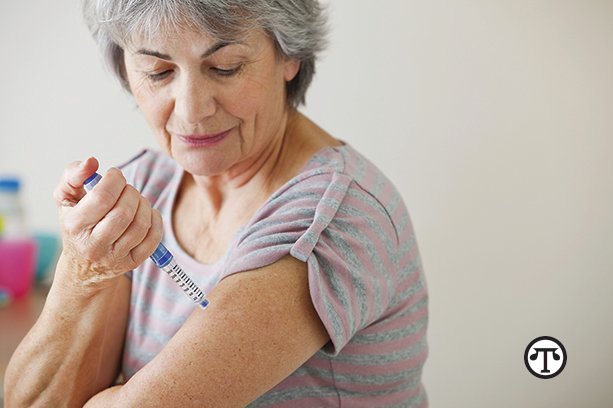FOR YOUR HEALTH: Insulin at 100: How The Discovery Improved Lives

Managing type 1 diabetes is getting easier thanks to research by the NIDDK.
(NAPSI)—The discovery of insulin 100 years ago led to many research and clinical advances that have greatly improved strategies used to help people manage diabetes to live longer and healthier lives.
Before insulin, physicians treated people with diabetes, a disease that occurs when blood glucose—or blood sugar—is too high, by recommending changes in their diet. In 1921, scientists at the University of Toronto found that pancreatic extracts from healthy dogs reduced blood glucose levels in other animals with diabetes. By 1922, the pancreatic extract, now known as insulin, was chemically processed and used in studies to treat people with type 1 diabetes.
This discovery, which led to the development of better insulin formulations over time, also led to a series of research studies conducted or supported by the NIH’s National Institute of Diabetes and Digestive and Kidney Diseases (NIDDK) that have dramatically changed how people with diabetes, especially type 1 diabetes, live. For instance:
- In the 1970s, NIDDK researchers developed a more effective form of artificial human insulin using DNA technology. This artificial human insulin was purer and of higher quality than the animal-based insulin.
- In 1983, the NIDDK launched the Diabetes Control and Complications Trial (DCCT). This study showed that when people with type 1 diabetes use insulin to keep their blood glucose levels as close to their target range as possible, they are at significantly less risk for developing diabetes-related eye, kidney, and nerve diseases.
- Since 1994, the Epidemiology of Diabetes Interventions and Complications or EDIC trial has followed DCCT participants to show that keeping blood glucose levels steady over time helps people with type 1 diabetes live healthier and longer.
The discovery of insulin also led to research that has made managing diabetes easier and more effective. Such results led to the development of continuous glucose monitoring, insulin formulations that work faster or last longer throughout the day and keep blood glucose stable longer, and wearable insulin pumps.
Despite the many ways in which insulin has improved the well-being of people with type 1 diabetes, managing blood glucose levels is still a challenge. That is why the NIDDK continues to support research into insulin and other diabetes management tools and technologies. For example:
- NIDDK scientists are studying ways to make insulin more patient-friendly by developing formulations that do not need to be refrigerated and creating smaller, easier-to-use insulin pumps and blood glucose monitoring devices.
- Recent research shows artificial pancreas technology, also known as closed-loop control, can automatically monitor and regulate the delivery of insulin, which may reduce patient burden and help keep blood glucose levels in a healthy range.
- The NIH’s Rare and Atypical Diabetes Network, or RADIANT (www.atypicaldiabetesnetwork.org), helps researchers better understand unusual or unknown forms of diabetes.
- The NIDDK continues to study how type 1 diabetes occurs and how to prevent the disease. For instance, the NIDDK-supported TrialNet (www.trialnet.org) project is a collection of screening tools and research studies designed to help scientists learn how to slow or stop type 1 diabetes before or soon after patients are diagnosed.
The NIDDK remains committed to conducting diabetes research to help patients with diabetes live healthier lives and make the goal of finding a cure for type 1 diabetes more reachable.
To learn more about diabetes, including the latest research, visit the NIDDK website at www.niddk.nih.gov.
Responsible journalism is hard work!
It is also expensive!
If you enjoy reading The Town Line and the good news we bring you each week, would you consider a donation to help us continue the work we’re doing?
The Town Line is a 501(c)(3) nonprofit private foundation, and all donations are tax deductible under the Internal Revenue Service code.
To help, please visit our online donation page or mail a check payable to The Town Line, PO Box 89, South China, ME 04358. Your contribution is appreciated!


Leave a Reply
Want to join the discussion?Feel free to contribute!